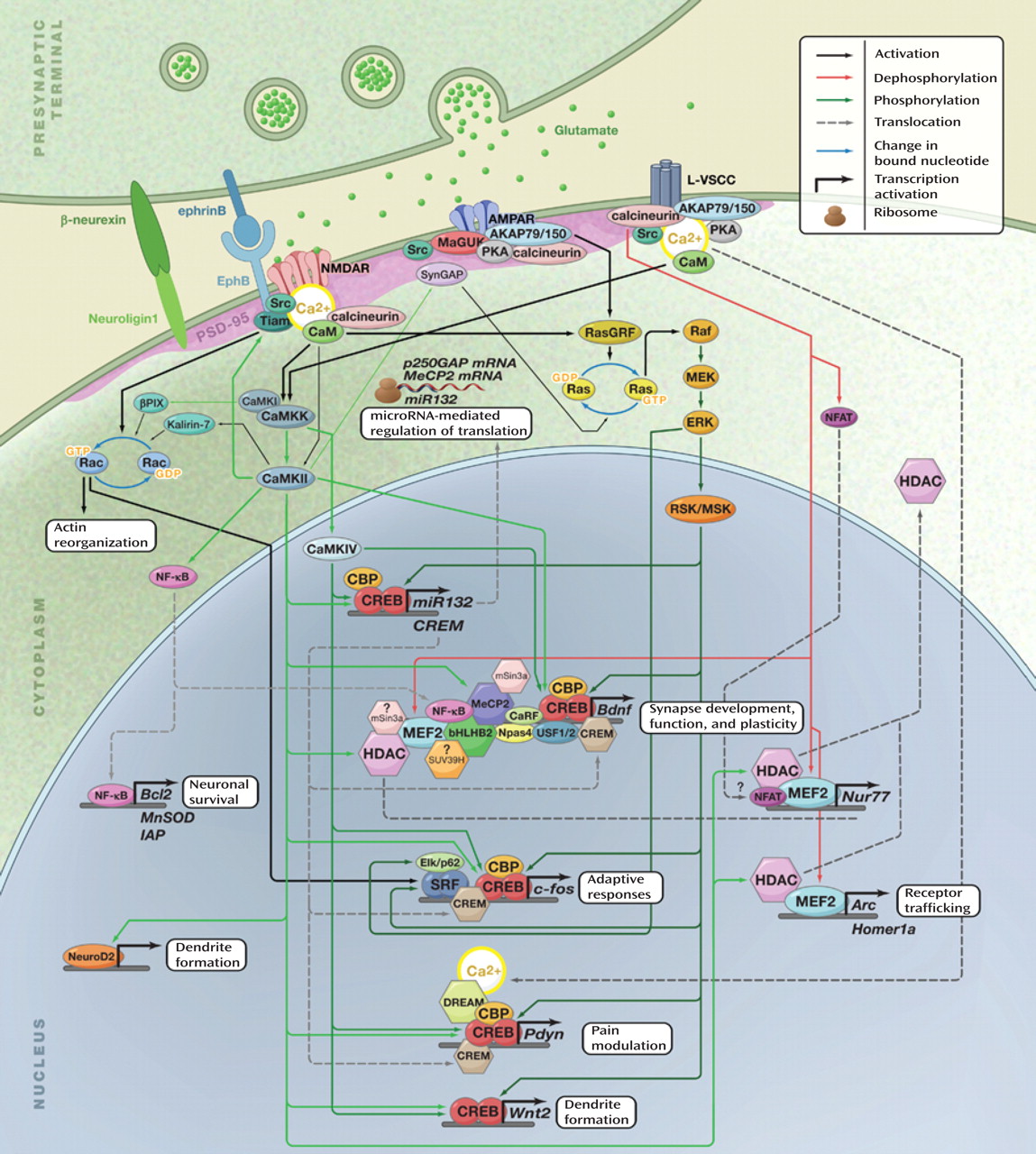Brain disease research has historically focused on abnormalities of neurotransmitter release at synapses. However, modern neuroscience has uncovered numerous intracellular signaling pathways affecting
synapse development and function that likely play roles in diseases of mood and cognition. Sensory, cognitive, and motor experiences play important roles in shaping neuronal circuitry by affecting the development and maturation of synaptic connections. Environmental stimulation and resultant neuronal activity trigger the influx of calcium into neurons through L-type voltage-gated calcium channels or through
N -methyl-
d -aspartic acid (NMDA)- or AMPA-gated ion channels. The present image depicts the signaling pathways induced by neuronal activity driven calcium influx that lead to the transcription of new gene products. More than 300 genes are transcribed in response to increased intracellular calcium, and, remarkably, each gene has a unique time course and magnitude of induction. These newly transcribed genes play important roles in many aspects of nervous system development through the regulation of neuronal survival, dendritic growth, synapse formation, and synaptic refinement. Activity-dependent transcription also plays a role later in development by modulating synaptic plasticity, allowing for learning and the formation of new memories. Interestingly, recent research in this area has revealed that the mutation of a number of activity-regulated transcripts and the proteins that regulate their transcription can result in diseases of human cognition. For example, Rett syndrome, Rubinstein-Taybi syndrome, Coffin-Lowry syndrome, and some forms of autism are caused by mutations of components of the activity-dependent gene transcription program. It may be that milder diseases of cognition, such as epilepsy and autism, arise from mutations in the regulatory regions that control the expression of activity-regulated genes, while mutations that disrupt the coding region of genes may cause more severe cognitive phenotypes, such as mental retardation. As more components of the signaling networks that control the transcription of activity-dependent genes are identified, it is remarkable to note the significant degree of overlap between genes that regulate activity-dependent transcription and genes that are mutated in human cognitive disorders. This observation suggests that a thorough comparison of the genes involved in cognitive disorders and components of the activity-regulated gene network governing synapse development and function will increase our understanding of disorders of human cognition.


